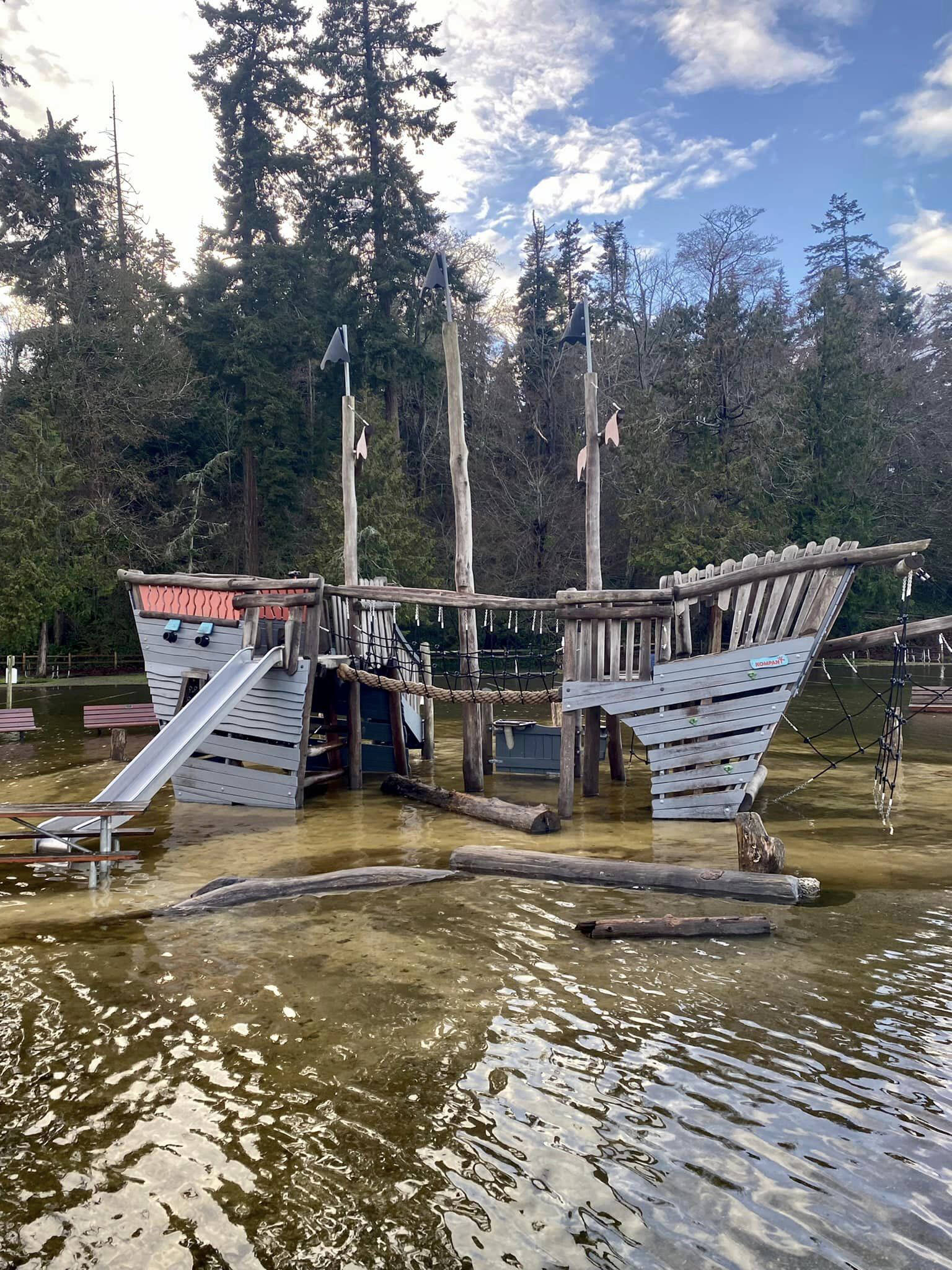“Everybody talks about the weather, but nobody does anything about it.”
That’s what Charles Dudley Warner said in an editorial for The Hartford Courant in 1897.
That sentiment is what two ecologists from Bainbridge-based EcoAdapt are trying to avoid when it comes to sea level rise and other climate change issues facing us today.
Given the impact from recent King Tides and flooding at several locations around BI, EcoAdapt chief scientist and executive director Lara J. Hansen and Deb Rudnick, project manager and environmental scientist, are calling on community members to complete a survey and share their concerns about sea level rise and what they want to do about it.
Once the survey is finished, EcoAdapt will follow up with small groups or one-on-one conversations with willing participants. The effort is funded by a Bainbridge Community Foundation grant.
“We are an island, and we are on the sea, and those two things should make us think a bit about sea level rise more seriously than we perhaps have been,” Hansen said, adding no one really knows what the solutions are yet.
“When it comes to mitigation solutions we know exactly what we should be doing. It just takes the political will to do it,” she said. But the way we respond to the effects of climate change is less certain because “so much of that is based on the values of the community and resources that are available for the needs and the desires.”
The recent King Tides gave islanders a preview of what sea level rise will look like.
Which is why Rudnick wants to engage with the community to answer some questions: What are their concerns? How do those concerns affect them? How does this affect where they live? How will they travel around the island or to work?
She wants to understand the full range of things people are concerned about. What do people want the community to be doing? What do they want the local government to be doing? What do they personally think they need to be doing to prepare for or respond to sea level rise in the coming years and decades?
EcoAdapt is a nonprofit, and not a regulatory body. “It’s not our job to enforce anything,” Rudnick said, adding their goal is to link people with resources.
Looking to the future, there may be things the community wants to ensure are in the city code. There may be decisions made at the state level about where and how shorelines can be hardened to prevent flooding, and there will be costs associated with those decisions.
One issue Hansen is curious about is, “How will people deal with the loss of home values, which is generally their largest single investment?”
“A lot of people’s homes are vulnerable to the effects of climate change from a variety of things, not just sea level rise. How do we deal with that as a society?” Hansen asked.
Compared to the recession in 2008 which led to huge losses in real estate prices, the loss of home values to sea level rise could be even greater, Hansen said. She asked, “How do we figure out other ways to ameliorate the financial or the physical damage before it happens?”
There are a range of scenarios that predict a 2 to 3-foot rise in sea level over the century. Rudnick said bulkheads and armoring are going to become a big issue for many properties as we move forward with sea level rise mitigation.
“Climate change doesn’t give you a choice about that,” Hansen said. “I think a lot of people are a little bit frozen by fear about it because it’s scary. This is a challenge that we have not yet ever faced as a species.”
Hansen is hopeful that community conversations will lead to solutions because better plans are needed for coastal properties that will be flooded, abandoned and become a community hazard as opposed to an individual person’s responsibility. Rudnick added, “There are going to be components that are not the city’s responsibility with regard to private property, and how they deal with it is not the city’s responsibility.”
Many areas of BI will not be affected by sea level rise, but the majority of the shoreline will be affected by inundation, loss of habitat or geologic instability. “We can creatively develop ideas that could lead us to the future that we want. Let’s visualize what we want Bainbridge Island to look like with rising seas, and let’s figure out how we get there.”
The survey closes Jan. 31; take the survey at tinyurl.com/bdh6j3kb.
For details go to ecoadapt.org/programs/awareness-to-action/BI-SLR.



